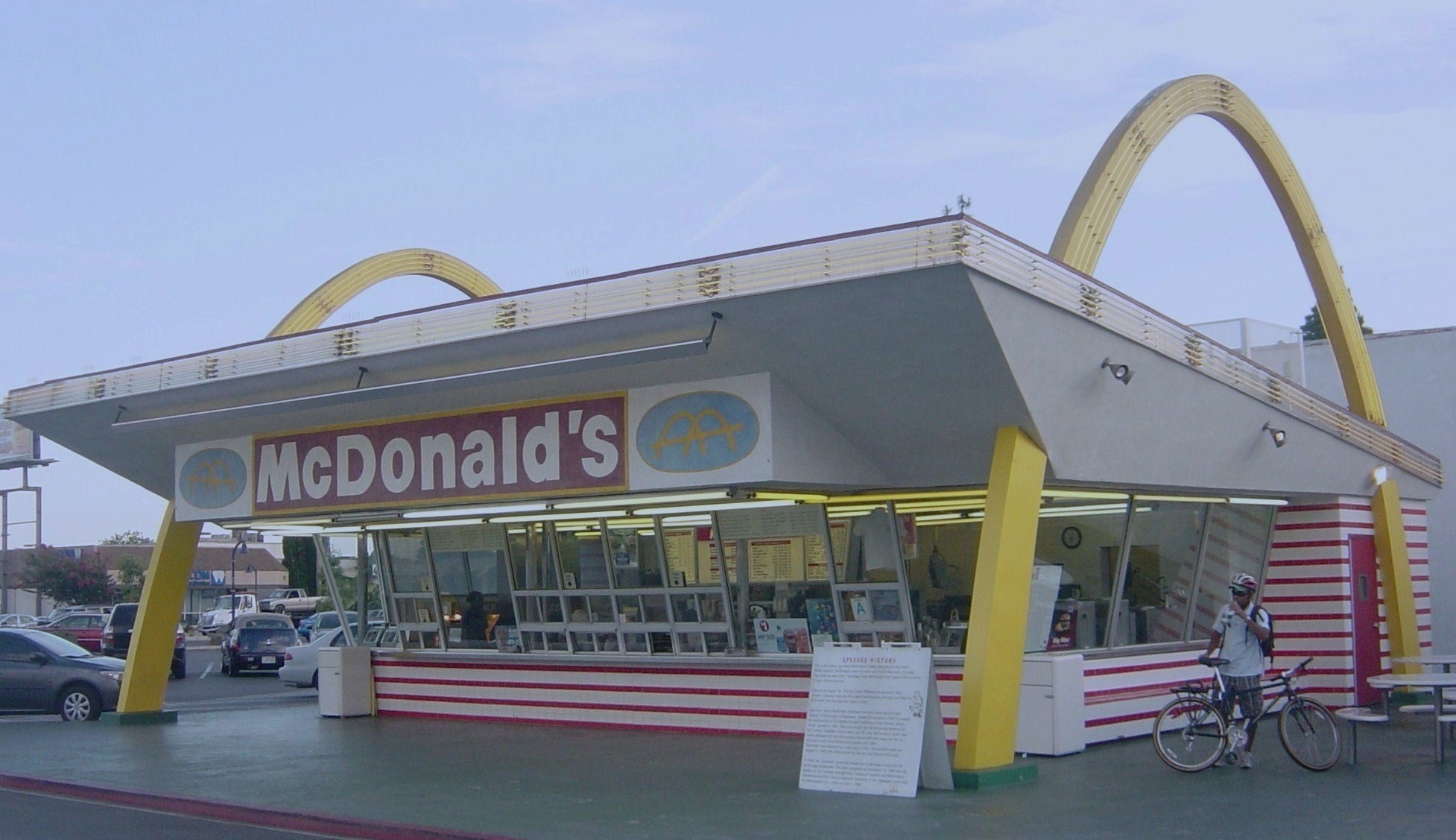Review: 'Every Crooked Path' by Steven James
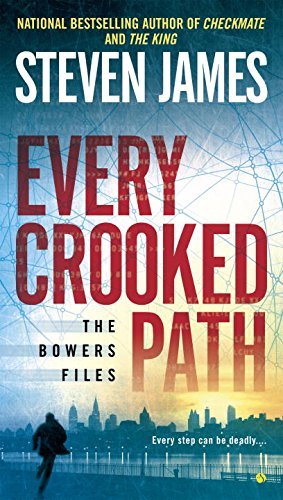 When my favorite stop on I-95 in North Carolina ceased selling paperbacks because the distributor folded, they offered to sell me the spinrack and the 24 well-thumbed books left on it. I ended up with some thrillers I otherwise would have missed, like this one. I love the rack but wish I'd missed this book.
When my favorite stop on I-95 in North Carolina ceased selling paperbacks because the distributor folded, they offered to sell me the spinrack and the 24 well-thumbed books left on it. I ended up with some thrillers I otherwise would have missed, like this one. I love the rack but wish I'd missed this book.
Every Crooked Path is a convoluted novel with slapdash pacing, thin characterization and characters who speak in the same voice -- a trait most excruciating when the protagonist attempts to bond across the generation gap with his girlfriend's sullen 15-year-old daughter. FBI agent Patrick Bowers is hunting a dark web child sex trafficking group, a disturbing subject the author tries to soften by being short on harrowing details. That works, but the logic of the case doesn't. One thing that did work was a character suffering a breakdown from a job watching videos of child exploitation for a safety group. That has become an all-too-real problem for social media moderators at Facebook.
Behind the Throne by K.B. Wagers
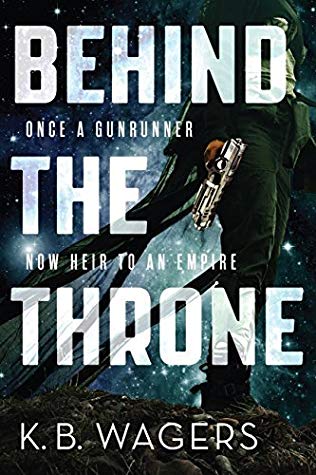 This book was highly recommended by six avid readers on File 770 and they were right. Hailimi Mercedes Jaya Bristol, a gunrunner who left her family 20 years ago and never looked back, is brought home when the assassinations of her sisters and niece leave her heir to the empire.
This book was highly recommended by six avid readers on File 770 and they were right. Hailimi Mercedes Jaya Bristol, a gunrunner who left her family 20 years ago and never looked back, is brought home when the assassinations of her sisters and niece leave her heir to the empire.
The story mixes palace intrigue with well-spun action as Haili struggles to survive long enough to figure out who's behind the attempted coup. The India-inspired, far-future society Wagers has created is richly drawn and contains surprises too good to spoil. A lot of the charm comes from the fact that Haili's accomplished criminal life made her a fish out of water as a potential empress. She's always clashing with her ever-present bodyguards over her desire to carry her own weapons and is sometimes less the protected than the protector.
One minor criticism is that the large cast of characters around Haili made it tough to remember them all when they showed up again. The novel is a fantastic opener to a trilogy.
Elmer Gantry by Sinclair Lewis
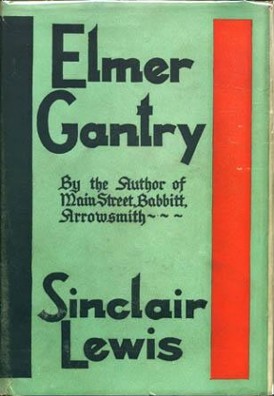 Elmer Gantry felt as if I'd read it already because the protagonist has been so widely referenced in American culture. Sinclair Lewis mercilessly skewers a narcissistic preacher who exploits Christianity to enrich himself and secretly commits every sin he fulminates against from the pulpit.
Elmer Gantry felt as if I'd read it already because the protagonist has been so widely referenced in American culture. Sinclair Lewis mercilessly skewers a narcissistic preacher who exploits Christianity to enrich himself and secretly commits every sin he fulminates against from the pulpit.
The book begins with Gantry as a hard-partying, anti-intellectual football star at a Baptist university, follows him into a career as a pastor he feels no calling to pursue and tracks for a quarter century his ups and downs (but mostly ups). Gantry's mistreatment of women, whom he adores until he gets them, was particularly cutting. Aside from some racial slurs and Gantry's brief flirtation with a 14-year-old girl being insufficiently called out as predatory, the book has aged well.
Lewis is a withering social critic. Elmer Gantry is less a biography than an indictment. It's rare to read a book about a character so disliked by its author. I've never wanted more to see a protagonist pay for his sins.
Gamer Fantastic RPG Fiction Anthology
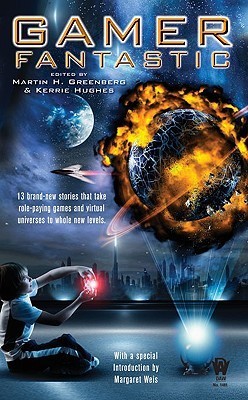 This anthology doesn't live up to the inventive premise of telling stories where roleplaying games and reality intersect. I was ready to quit after the introductory material and early stories all hammered the same worn-out joke about gamers being slovenly fast-food addicts, but I stuck around to see what Jim C. Hines would do with his story "Mightier Than the Sword." His entertaining tale was about libriomancers who could pull weapons and creatures out of SF/F novels, a premise he later expanded into a book of that name. I liked his references to real writers and novels, including a subtle, self-deprecating joke about himself. Reading Jody Lynn Nye's engaging "Roles We Play" about roleplaying being used as a therapeutic tool in the 19th century has motivated me to seek out her novels. Kristine Kathryn Rusch ended with an intriguing story about a magical RPG store in Lake Geneva, Wisconsin. The rest was forgettable, including a short perfunctory tribute to E. Gary Gygax after his death.
This anthology doesn't live up to the inventive premise of telling stories where roleplaying games and reality intersect. I was ready to quit after the introductory material and early stories all hammered the same worn-out joke about gamers being slovenly fast-food addicts, but I stuck around to see what Jim C. Hines would do with his story "Mightier Than the Sword." His entertaining tale was about libriomancers who could pull weapons and creatures out of SF/F novels, a premise he later expanded into a book of that name. I liked his references to real writers and novels, including a subtle, self-deprecating joke about himself. Reading Jody Lynn Nye's engaging "Roles We Play" about roleplaying being used as a therapeutic tool in the 19th century has motivated me to seek out her novels. Kristine Kathryn Rusch ended with an intriguing story about a magical RPG store in Lake Geneva, Wisconsin. The rest was forgettable, including a short perfunctory tribute to E. Gary Gygax after his death.
Stephen Glass Couldn't Get Away with It Today
The 2003 movie Shattered Glass stars Hayden Christensen as Stephen Glass and tells the story of how he was exposed as one of the biggest frauds in the history of American journalism. I caught the film for the first time recently on HBO.
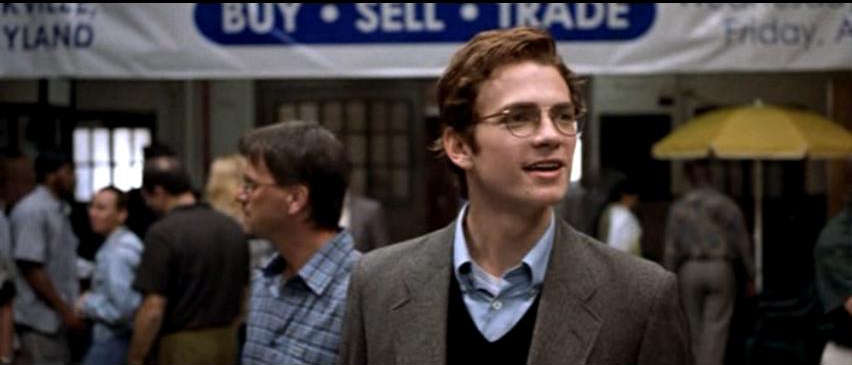
I followed the events of the film closely when they occurred in 1998. I liked that Glass was caught by an online reporter, Adam Penenberg at Forbes Digital Tool, with help from colleagues Om Malik and others. Back then it was not respected to report for a web publication. By contrast Glass was a star at The New Republic and it held huge mainstream cred.
Penenberg brought Glass down through the tedious process of checking his sources on that story. He couldn't find any. Glass made up a fake hacker with fake parents, a fake company, a fake police organization, fake advocacy group, fake law proposed in 21 states, fake hacker's group and a fake convention.
Although this is an era where completely fake websites share fake news stories that are spread by millions, it would be tougher now for someone like Glass to get away with what he did in the 1990s. If an attention-grabbing story quotes people and organizations, readers will expect to find a presence for them on social media. The more who can't be found, the more suspicious the story will appear.
Penenberg recounted the reporting he had to do to see if Glass made up all those people and groups:
Our first step was to plug Jukt Micronics into a bunch of search engines. We found no web site, odd for a "big-time software firm." Our next step was to contact the Software Publishers Association of America. Nothing. Next on our list was the California Franchise Tax Board. An official from the Tax Board confirmed that Jukt Micronics had never paid any taxes. Further investigations revealed that Jukt Micronics, if it existed at all, was not listed under any of California's 15 area codes. Sarah Gilmer from the office of the California Secretary of State said there was no record of the company, "as a corporation, a limited liability or limited partnership."
Today, he wouldn't need to work the phones so hard. Social media is so pervasive that a fake source is going to stand out if it lacks any web presence, social media accounts or friends who can be contacted to verify their existence.
Enter the TV Deadpool Contest
For the last 10 years I've been competing in the Ted Marshall Open, a contest to predict 10 shows on broadcast TV that will be cancelled during the coming season. Mike Burger began the game 17 years ago as the Alison La Placa Open, naming it after a great comedic actress who starred in the short-lived shows Suzanne Pleshette is Maggie Briggs, Duet, Open House, Stat, The Jackie Thomas Show and Tom.
When La Placa lost her sense of humor about the name in 2008 and sent a cease and desist letter, the contest was renamed Ted Marshall in possible tribute to fellow acting unfortunates Ted McGinley and Paula Marshall.
This year Burger decided not to run the contest. Because the fall season wouldn't be the same without the game, I've launched TVDeadpool.Com. The contest rules are the same: Pick 10 shows, rank them from 10 to 1 and receive points when they are cancelled. Guess a showcase showdown value on The Price is Right as a tiebreaker. There isn't much to look at yet, but there will be a leader board and a blog with renewal/cancellation updates.
We could use some more players as well as help getting the word out. The deadline to enter is this Sunday at 11:59:59 p.m.
'The Founder' Portrays Ray Kroc as a Hamburglar
I love biopics. I completely believe them when I'm watching, then spend the next few days scouring the web for how much nonsense I accepted as fact.
After hearing that The Founder was on Netflix, last night I watched Michael Keaton portray Ray Kroc as he pried McDonald's away from the brothers who founded the original restaurant and invented its fast food techniques. The film portrays Kroc as a villain and the brothers as heroes.
Judging strictly by the film itself, and not the actual facts, I question the idea that Dick and Mac McDonald were horribly mistreated by Kroc, though Nick Offerman and John Carroll Lynch are fantastic as those brothers at eliciting sympathy. Don't read any further if you want to avoid spoilers.
When Kroc comes into the picture, the McDonald brothers are shown running a highly successful local restaurant in San Bernardino, California, that they have tried and failed to launch as a franchise. While they continue to run that restaurant, we see Kroc crossing the country and working indefatigably to attract franchise owners. All the efforts to build the business and keep franchise owners in line are credited to Kroc. The McDonalds only show up to fight something Kroc wants to do or express worry that he's taking advantage of them.
Given that scenario as depicted, there's no reason to believe that McDonald's ever goes national without Kroc. The brothers are shown as good-natured, good-hearted and completely small time.
So when Kroc makes his move to take over, he's trying to wrest control of a business with hundreds of restaurants that he largely built on his own. It's hard to feel like he stole something that would never have existed without him.
At the end of the movie, Kroc does two things that make him look like a complete bastard. According to Lisa Napoli, the author of the biography Ray and Joan, one of these is true and the other false.
Photo of the oldest operating McDonald's in Downey, Califoria, taken by Ruth Hara available under a Creative Commons Attribution 2.0 Generic (CC BY 2.0) license.

